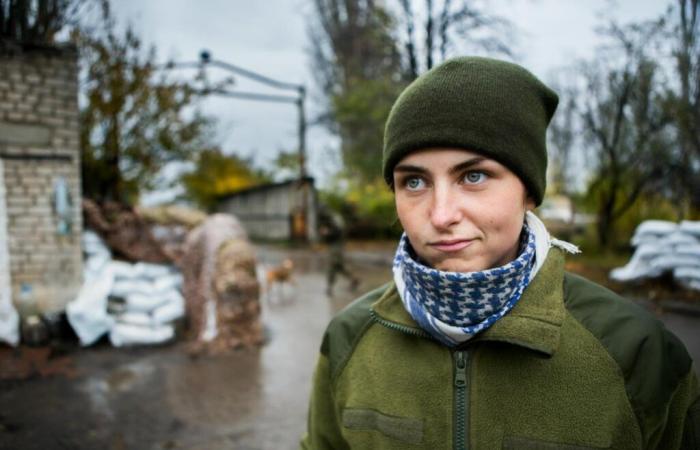
JJanuary 2024, village of Zakyne, Donbass front, Ukraine. “Last night I told my team to leave the front. We had been under fire for twenty-four hours. We couldn't even launch a drone to see where the shots were coming from. (…) No need to stay there. » The lieutenant knows what she's doing. She has experience, already several years on the front line. She commands an aerial reconnaissance section of 25 men equipped with drones – “our birds”, “our babies”.
Read also | Article reserved for our subscribers War in Ukraine: in the Donbass, with a pioneer regiment in drone combat
Read later
The 28-year-old's name is Yulia Mykytenko. She spoke to the Franco-American journalist Lara Marlowe. And, from this long testimony, the star columnist of theIrish Times from Dublin has produced a key book to understand what the war in Ukraine is: How Good It Is I Have No Fear of Dying (“fortunately, I am not afraid of dying”, ed. Head of Zeus, London, 2024, untranslated). Scroll here, page after page, a story of bravery, a war diary, the portrait of a patriot with a big heart, a moral lesson, a piece of political history of Ukraine. In short, and masterfully told, the answer to this simple question: why are Ukrainians dying?
There is trench warfare. Yulia's section patrols 50 kilometers of a front of 1,200. More than a century after the First World War, life in the trenches has hardly changed: the cold, the mud, the lack of sleep, the rats that swarm and come to feed on the corpses – Russian and Ukrainian. Together, the body armor and helmet weigh more than 10 kilos. “Each of our drones can detect enemy movement within a radius of 10 to 15 kilometerssaid Lieutenant Mykytenko. We are monitoring the Russian lines, the movements which announce an assault on our trenches. Ukrainian artillery fire is directed. A large part of our mission is also to recover our dead and our wounded. (…) You have to decide the right time, it's my responsibility to choose who goes, and I often go with them. »
Escaping the Russian Boot
On leave at the end of October, Yulia came to present her book in Paris. Fine features, high cheekbones, adolescent face, soft voice, military outfit fitted at the waist, a lock of sparkling blue colored hair, she recounts her war without boasting. She pauses, the words are whispered, becoming barely audible, when she talks about her deaths. A husband, Illia, killed in combat, as well as around twenty close friends. She saw all the savagery of so-called “high intensity” warfare. She was born in 1995, four years after Ukraine's independence. Poor family from the kyiv region: we speak Russian and read Pushkin and Lermontov at home, but we have Ukrainian patriotism in our hearts.
You have 51.36% of this article left to read. The rest is reserved for subscribers.





